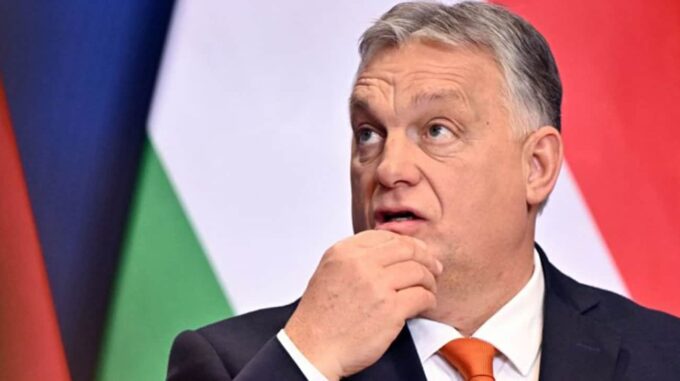The leader of Hungary’s opposition forces has launched a broad critique of the so-called “referendum” orchestrated by Viktor Orbán regarding support for Ukraine

According to Peter Madyar, head of the "Tisa" party, the government-organized polling process is more a failure of illusion than a true expression of the Hungarian people's will. In a detailed statement posted on Facebook, Madyar expressed strong emotions and mentioned an unprecedentedly low turnout, which, he claims, did not exceed 600,000 voters — and was clearly falsified. He believes this represents the worst result in the history of all national consultations organized by the government, adding that it only leads to the conclusion about the total inefficiency and failure of Orbán's gaming policies concerning mobilizing citizens around issues vital to the country. "Instead of open and transparent meetings, discussions, and debates, the government limited itself to mailing out letters and conducting a massive advertising campaign financed by roughly 10 billion forints — approximately $28,600," the politician emphasized. According to him, these funds could have been used much more rationally, for example, to repair hospitals, improve healthcare systems, or modernize railway infrastructure. Such expenditure, in Madyar's view, exemplifies corruption and irresponsible misuse of state resources at a time when the country's real problems remain neglected by the authorities. Peter Madyar underscored that the government's actions are less about listening to the voice of the people and more about manipulating public opinion and ignoring the genuine needs of citizens. "Failure, a corrupt government, and the absence of genuine dialogue — that is what characterizes this behind-the-scenes campaign," he stated. This scandal is set against the backdrop of spring this year when Prime Minister Viktor Orbán announced a "national consultation" on policy support for Ukraine and its accession to the European Union. On April 19, ballots were sent out in the country, directly urging Ukrainians to vote against the country's EU enlargement. Orbán himself publicly voted against this issue, which was met with criticism from opponents. A particularly scandalous element was a video released by his ally, Alexandra Szentkirályi. In the video, in a style reminiscent of propaganda, she spoke about the growing threat of human organ trafficking, human trafficking, and drug trafficking if Ukraine joins the EU. Several days later, Orbán released another video calling on people not to support Ukraine's accession to the EU and hinting at the possible involvement of Hungarians in the war, a move seen as part of his political strategy to shape public opinion. These actions actively highlight the internal political ambitions of the Hungarian prime minister, who seeks to leverage anti-Putin sentiments and growing resistance to European integration to strengthen his position ahead of elections. At the same time, these initiatives have drawn criticism from opposition forces, who accuse the government of manipulation and a lack of honest cooperation with the people. Thus, the situation around the "referendum" and Orbán's policy regarding Ukraine underscores the ongoing polarization in Hungarian society and the struggle to garner public support. The failure of government intentions, dependence on propaganda, and shadowy campaign finances raise increasing doubts about the true motives of the authorities and their ability to respond adequately to current challenges. In a context where the idea of European integration for Ukraine remains a relevant and pressing issue for many countries, Hungary’s behavior continues to cast doubt on its capacity to be a responsible and transparent partner within the European community.

